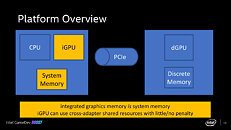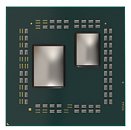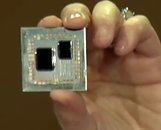Apr 24th, 2025 06:42 EDT
change timezone
Latest GPU Drivers
New Forum Posts
- random system shutdown with fans running at full speed (56)
- RX 9000 series GPU Owners Club (505)
- What's your latest tech purchase? (23585)
- The TPU UK Clubhouse (26164)
- Are the 8 GB cards worth it? (123)
- New GPU 5070 Ti or better CPU Ryzen7 7800X3D ? (10)
- 3DMARK "LEGENDARY" (307)
- What are you playing? (23454)
- Help me identify Chip of this DDR4 RAM (33)
- 5070 Ti power limit questions (61)
Popular Reviews
- NVIDIA GeForce RTX 5060 Ti 8 GB Review - So Many Compromises
- Colorful iGame B860M Ultra V20 Review
- ASUS GeForce RTX 5060 Ti TUF OC 16 GB Review
- ASRock X870E Taichi Lite Review
- Upcoming Hardware Launches 2025 (Updated Apr 2025)
- Sapphire Radeon RX 9070 XT Pulse Review
- Sapphire Radeon RX 9070 XT Nitro+ Review - Beating NVIDIA
- NVIDIA GeForce RTX 5060 Ti PCI-Express x8 Scaling
- AMD Ryzen 7 9800X3D Review - The Best Gaming Processor
- ASUS GeForce RTX 5080 TUF OC Review
Controversial News Posts
- NVIDIA GeForce RTX 5060 Ti 16 GB SKU Likely Launching at $499, According to Supply Chain Leak (182)
- NVIDIA Sends MSRP Numbers to Partners: GeForce RTX 5060 Ti 8 GB at $379, RTX 5060 Ti 16 GB at $429 (127)
- NVIDIA Launches GeForce RTX 5060 Series, Beginning with RTX 5060 Ti This Week (115)
- Nintendo Confirms That Switch 2 Joy-Cons Will Not Utilize Hall Effect Stick Technology (105)
- Nintendo Switch 2 Launches June 5 at $449.99 with New Hardware and Games (99)
- Sony Increases the PS5 Pricing in EMEA and ANZ by Around 25 Percent (85)
- NVIDIA PhysX and Flow Made Fully Open-Source (77)
- Windows Notepad Gets Microsoft Copilot Integration (75)
News Posts matching #GDC
Return to Keyword BrowsingLords of the Fallen Showcase Trailer Demonstrates Cutting Edge Unreal Engine Visuals
Hexworks and CI Games have shown off their upcoming RPG, Lords of the Fallen, as part of the State of Unreal GDC Showcase. The trailer demonstrates the team's ambitions and the use of Unreal Engine 5 has allowed them "to create the most immersive game experience possible". The game's character customization system is a cumulation of UE5 generated geometry and 3D scans taken from real life human models. The development team states that this allows players to "create unique faces and bodies by dynamically morphing between a huge range of shapes before finessing the finer details."
Unreal Engine 5's Lumen Global Illumination has been put to good use by the team - the game's complex and rich environments are lit in dramatic and atmospheric fashion, all in real time, with an added layer of technical accomplishment due to the player being able to swap between two parallel worlds. Hexworks devised its own custom toolset to enable the seamless shift from Axiom, the realm of the living, to Umbral, the realm of the dead: "This means our artists and designers can ensure these worlds feel intrinsically linked, like two sides of the same coin... even if one side is decidedly more horrific than the other."
Unreal Engine 5's Lumen Global Illumination has been put to good use by the team - the game's complex and rich environments are lit in dramatic and atmospheric fashion, all in real time, with an added layer of technical accomplishment due to the player being able to swap between two parallel worlds. Hexworks devised its own custom toolset to enable the seamless shift from Axiom, the realm of the living, to Umbral, the realm of the dead: "This means our artists and designers can ensure these worlds feel intrinsically linked, like two sides of the same coin... even if one side is decidedly more horrific than the other."
NCSOFT Unveiled its Digital Human for the First Time at GDC 2023
NCSOFT, a global premier game developer and publisher, unveiled its digital human technology together with Project M's trailer at the Game Developers Conference 2023 (GDC), currently being held in San Francisco, CA.
On March 22, NCSOFT revealed the video at State of Unreal, Epic Games' opening session at GDC held to introduce new Unreal Engine tools and technologies in collaboration with its partners. Here, Songyee Yoon, chief strategy officer (CSO) at NCSOFT, was on stage to introduce the company's latest project, Project M, and its trailer.
On March 22, NCSOFT revealed the video at State of Unreal, Epic Games' opening session at GDC held to introduce new Unreal Engine tools and technologies in collaboration with its partners. Here, Songyee Yoon, chief strategy officer (CSO) at NCSOFT, was on stage to introduce the company's latest project, Project M, and its trailer.

Senua's Saga: Hellblade II Gets a New Trailer
Ninja Theory has released a new trailer for its upcoming Senua's Saga: Hellblade II game, which was a part of Epic's State of Unreal showcase from GDC 2023. The new trailer focuses on Senua and character rendering rather than the game itself but at least we get an idea what to expect from the game when it comes out.
As you would have guessed, the game is developed on the Unreal Engine, and facial animation is definitely looking impressive. Previously, Ninja Theory revealed a bit of the gameplay at The Game Awards last year, and we certainly expect more from Microsoft at this year's Xbox Games Showcase on June 11th.
As you would have guessed, the game is developed on the Unreal Engine, and facial animation is definitely looking impressive. Previously, Ninja Theory revealed a bit of the gameplay at The Game Awards last year, and we certainly expect more from Microsoft at this year's Xbox Games Showcase on June 11th.
Unity Shows Games Powered by Its Development Platform at GDC 2023
Unity, the world's leading platform for creating and growing real-time 3D (RT3D) content, will return to the Game Developer Conference (GDC) this year with a focus on celebrating the achievements of its developer community. Unity will spotlight 16 games across various platforms, from studios around the world at the Unity booth (#S327). Each title is made with Unity and uses Unity's platform and services to push the creative, experiential and visual limits of their games. Additionally, Unity will share more about its future open AI ecosystem that millions of Unity creators will be able to integrate into their existing workflows to deliver immersive games and experiences to billions of users around the world.
GDC attendees can visit the Unity booth to get hands-on with some of the most unique and visually arresting games that are either available now or in development: FEROCIOUS is a breathtaking survival shooter developed by designer Leonard Saalfrank who used Unity's High Definition Render Pipeline (HDRP), Shader Graph, and VFX Graph to deliver a mysterious world, rich with lush environments, stunning seascapes and terrifying creatures. One of the most authentic boxing games, Undisputed, will also be spotlighted. Developed by Steel City Interactive, the game pushes the limits of Unity's HDRP and Animation Rigging to create stunning visuals and bone-jarring action and also leverages Unity Gaming Services' Game Server Hosting and Matchmaker.
GDC attendees can visit the Unity booth to get hands-on with some of the most unique and visually arresting games that are either available now or in development: FEROCIOUS is a breathtaking survival shooter developed by designer Leonard Saalfrank who used Unity's High Definition Render Pipeline (HDRP), Shader Graph, and VFX Graph to deliver a mysterious world, rich with lush environments, stunning seascapes and terrifying creatures. One of the most authentic boxing games, Undisputed, will also be spotlighted. Developed by Steel City Interactive, the game pushes the limits of Unity's HDRP and Animation Rigging to create stunning visuals and bone-jarring action and also leverages Unity Gaming Services' Game Server Hosting and Matchmaker.

NVIDIA Previews and Releases Path Tracing SDK at GDC 2023
As promised and detailed earlier, NVIDIA has now released the first SDK for Path Tracing. Path Tracing, which should accurately re-create physics of all light sources in a scene, has been around and we already had a chance to see it in some demos like Quake RTX and Portal RTX, but now, thanks to some previously available NVIDIA tools and features, it could be finally coming to more games and not just tech demos.
According to NVIDIA, the thing that makes Path Tracing possible now, and more accessible to developers, is the combination of previously available NVIDIA technologies, as well as some new ones, including the new performance multiplier in DLSS 3, called the DLSS Frame Generation. The DLSS Frame Generation, working on GeForce 40 series cards and using the Optical Flow Accelerator, is what made real-time path tracing possible. The RTX Path Tracing SDK, according to NVIDIA, should re-create the physics of all light sources in a scene in order to reproduce what the eye sees in real life, and allows to build a reference path traces to ensure that lighting during production is true to life, while accelerating the iteration process; or build high-quality photo modes for RT-capable GPUs or real-time, ultra-quality modes that take advantage of the Ada Lovelace architecture.
According to NVIDIA, the thing that makes Path Tracing possible now, and more accessible to developers, is the combination of previously available NVIDIA technologies, as well as some new ones, including the new performance multiplier in DLSS 3, called the DLSS Frame Generation. The DLSS Frame Generation, working on GeForce 40 series cards and using the Optical Flow Accelerator, is what made real-time path tracing possible. The RTX Path Tracing SDK, according to NVIDIA, should re-create the physics of all light sources in a scene in order to reproduce what the eye sees in real life, and allows to build a reference path traces to ensure that lighting during production is true to life, while accelerating the iteration process; or build high-quality photo modes for RT-capable GPUs or real-time, ultra-quality modes that take advantage of the Ada Lovelace architecture.

Razer Introduces Universal Haptics SDK and Directional Haptics at GDC 2023
Razer, the leading global lifestyle brand for gamers, today announced the release of the Interhaptics universal HD haptic SDK and directional haptics at the Game Developers Conference (GDC) 2023 in San Francisco. This free SDK release focuses on enabling a heightened immersive gaming experience, bringing audio and visual effects to life with HD haptic feedback that can now be completely customized through the Interhaptics SDK.
With today's announcement, Interhaptics, the leading haptic technology platform, has expanded its support to include PlayStation 5*, PlayStation 4, Meta Quest 2, X-input controllers, iOS, and Android devices for game engines such as Unity and Unreal Engine. Additionally, the haptic composer software has been upgraded to include in-app testing for DualSense wireless controllers for PS5 and select Razer HyperSense headsets. Interhaptics can now deploy HD haptics on over 5 billion devices across multiple ecosystems. Developers can sign up for the waiting list for the Razer Kraken V3 HyperSense Dev Kit with programmable directional HD haptics at the Interhaptics website.
With today's announcement, Interhaptics, the leading haptic technology platform, has expanded its support to include PlayStation 5*, PlayStation 4, Meta Quest 2, X-input controllers, iOS, and Android devices for game engines such as Unity and Unreal Engine. Additionally, the haptic composer software has been upgraded to include in-app testing for DualSense wireless controllers for PS5 and select Razer HyperSense headsets. Interhaptics can now deploy HD haptics on over 5 billion devices across multiple ecosystems. Developers can sign up for the waiting list for the Razer Kraken V3 HyperSense Dev Kit with programmable directional HD haptics at the Interhaptics website.

Cooler Master and D-BOX Team up for an Innovative Haptic Gaming Chair
Cooler Master, the high-performance component and peripherals brand, today announced it worked with D-BOX to produce its latest entry into the gaming chair market, The Motion 1 Haptic Gaming Chair. Cooler Master and D-BOX are currently present at the 2023 Game Developers Conference—GDC, taking place in San Francisco, from March 20 to 24, 2023. We invite all gaming studios to experience the Motion 1 haptic gaming chair at booth P1679 (Games from Quebec)
Motion 1 is the world's first haptic engine gaming chair developed in collaboration with D-BOX, a worldwide leader in haptic technology. Motion 1 is engineered to provide haptic feedback to your games and entertainment. Feel the bullets strafing your canopy in your favorite air battle movie, ocean waves crashing into your boat during a raid in Assassin's Creed Valhalla or the gentle tug as you accelerate in your favorite racing game. It's an entirely new dimension of realistic feedback that enhances your gaming and entertainment in a premium package replete with ergonomic comfort.
Motion 1 is the world's first haptic engine gaming chair developed in collaboration with D-BOX, a worldwide leader in haptic technology. Motion 1 is engineered to provide haptic feedback to your games and entertainment. Feel the bullets strafing your canopy in your favorite air battle movie, ocean waves crashing into your boat during a raid in Assassin's Creed Valhalla or the gentle tug as you accelerate in your favorite racing game. It's an entirely new dimension of realistic feedback that enhances your gaming and entertainment in a premium package replete with ergonomic comfort.

NVIDIA Accelerates Neural Graphics PC Gaming Revolution at GDC With New DLSS 3 PC Games and Tools
Ahead of next week's Game Developers Conference (GDC), NVIDIA announced an expanded game roster and new developer plug-ins for NVIDIA DLSS 3. The latest version of NVIDIA's AI-powered Deep Learning Super Sampling (DLSS) technology is now supported in an assortment of blockbuster games and franchises, and being integrated into Unreal Engine, one of the world's most popular game engines. The company is also publicly releasing the DLSS Frame Generation plug-in to further ease developer adoption of the technology.
"Neural graphics has revolutionized gaming since its introduction with NVIDIA DLSS, and we're now taking it to new heights," said Matt Wuebbling, vice president of global GeForce marketing at NVIDIA. "PC gaming super-franchises such as Diablo and Forza Horizon and Bethesda's new Redfall are raising the bar for image quality with stunning graphics while using DLSS to keep gameplay smooth as silk." Since its launch in 2018, NVIDIA DLSS has driven a neural graphics revolution in PC gaming. Neural graphics intertwines AI and graphics to create an accelerated rendering pipeline that continuously learns and improves. Instead of natively rendering every pixel in a frame, DLSS allows the game to render 1/8th of the pixels then uses AI and GeForce RTX Tensor Cores to reconstruct the rest of the pixels, dramatically multiplying frame rates, while delivering crisp, high-quality images that rival native resolution.
"Neural graphics has revolutionized gaming since its introduction with NVIDIA DLSS, and we're now taking it to new heights," said Matt Wuebbling, vice president of global GeForce marketing at NVIDIA. "PC gaming super-franchises such as Diablo and Forza Horizon and Bethesda's new Redfall are raising the bar for image quality with stunning graphics while using DLSS to keep gameplay smooth as silk." Since its launch in 2018, NVIDIA DLSS has driven a neural graphics revolution in PC gaming. Neural graphics intertwines AI and graphics to create an accelerated rendering pipeline that continuously learns and improves. Instead of natively rendering every pixel in a frame, DLSS allows the game to render 1/8th of the pixels then uses AI and GeForce RTX Tensor Cores to reconstruct the rest of the pixels, dramatically multiplying frame rates, while delivering crisp, high-quality images that rival native resolution.
GSC Game World to Show S.T.A.L.K.E.R. 2 at GDC 2023
According to the description of NVIDIA's session for GDC 2023, we will finally get to see S.T.A.L.K.E.R. 2: Heart of Chornobyl.
NVIDIA will be holding a session at GDC 2023 on March 23rd together with GSC Game World's 3D Animator, Anton Riabchuk, where it will give an exclusive look at S.T.A.L.K.E.R. 2: Heart of Chornobyl.
While GSC Game World released a few screenshots as well as an official trailer for the game, GDC 2023 could be the perfect place to show an in-engine gameplay. The description of the GDC session also reveals that GSC Game World is working closely with NVIDIA and the session will also include an introduction to Omniverse Audio2Face AI SDK.
NVIDIA will be holding a session at GDC 2023 on March 23rd together with GSC Game World's 3D Animator, Anton Riabchuk, where it will give an exclusive look at S.T.A.L.K.E.R. 2: Heart of Chornobyl.
While GSC Game World released a few screenshots as well as an official trailer for the game, GDC 2023 could be the perfect place to show an in-engine gameplay. The description of the GDC session also reveals that GSC Game World is working closely with NVIDIA and the session will also include an introduction to Omniverse Audio2Face AI SDK.

AMD Could Tease DLSS 3-rivaling FSR 3.0 at GDC 2023
AMD could tease its next-generation graphics performance enhancement rivaling NVIDIA DLSS 3, at the 2023 Game Developers Conference (GDC 2023), slated for March 23. While the company didn't name it, its GDC 2023 session brief references an "exciting sneak peek of new FidelityFX technologies" that will be "available soon," meaning that it isn't the recently released FSR 2.2. We expect this to be the very first look at FSR 3.0.
AMD frantically dropped in the first mention of FSR 3.0 in its Radeon RX 7900 series RDNA3 announcement presentation (slide below). The company let out precious little details of the new technology except the mention that it offers double the frame-rate versus FSR 2 (at comparable image quality). Does this involve a frame-rate doubling technology similar to DLSS 3? We don't know yet. It could just be a more advanced upscaling algorithm that doubles performance at a given quality target compared to FSR 2. We'll know for sure later this month. It would be a coup of sorts for AMD if FSR 3.0 doesn't require RX 7000 series GPUs, and can run on older Radeon GPUs, whereas DLSS 3 requires the latest GeForce RTX 40-series GPUs.
AMD frantically dropped in the first mention of FSR 3.0 in its Radeon RX 7900 series RDNA3 announcement presentation (slide below). The company let out precious little details of the new technology except the mention that it offers double the frame-rate versus FSR 2 (at comparable image quality). Does this involve a frame-rate doubling technology similar to DLSS 3? We don't know yet. It could just be a more advanced upscaling algorithm that doubles performance at a given quality target compared to FSR 2. We'll know for sure later this month. It would be a coup of sorts for AMD if FSR 3.0 doesn't require RX 7000 series GPUs, and can run on older Radeon GPUs, whereas DLSS 3 requires the latest GeForce RTX 40-series GPUs.

NVIDIA Brings RTX and DLSS to Arm Platform
NVIDIA at GDC dropped a major hint at where it wants to take PC gaming post the Arm acquisition. The company is demonstrating its RTX real-time raytracing technology, and the DLSS performance enhancement, on an Arm processor by MediaTek. To the PC, this means NVIDIA is laying the foundations of gaming in the post-x86 world where it holds Arm IP; foundations that were dug up by Apple and its mighty M1 chip, based on Arm CPU technology.
Making this unequivocal, was MediaTek. "RTX is the most groundbreaking technology to come to PC gaming in the last two decades," said PC Tseng, general manager of MediaTek's Intelligent Multimedia Business Unit."MediaTek and NVIDIA are laying the foundation for a new category of Arm-based high-performance PCs." The Taiwan-based Arm SoC major has developed a new Arm-based PC processor called Kompanio 1200, which it hopes will power PC platforms much like the Apple M1 or the Qualcomm Compute Platforms.
Making this unequivocal, was MediaTek. "RTX is the most groundbreaking technology to come to PC gaming in the last two decades," said PC Tseng, general manager of MediaTek's Intelligent Multimedia Business Unit."MediaTek and NVIDIA are laying the foundation for a new category of Arm-based high-performance PCs." The Taiwan-based Arm SoC major has developed a new Arm-based PC processor called Kompanio 1200, which it hopes will power PC platforms much like the Apple M1 or the Qualcomm Compute Platforms.

Linux Foundation to Form New Open 3D Foundation
The Linux Foundation, the nonprofit organization enabling mass innovation through open source, today announced an intent to form the Open 3D Foundation to accelerate developer collaboration on 3D game and simulation technology. The Open 3D Foundation will support open source projects that advance capabilities related to 3D graphics, rendering, authoring, and development. As the first project governed by the new foundation, Amazon Web Services, Inc. (AWS) is contributing an updated version of the Amazon Lumberyard game engine as the Open 3D Engine (O3DE), under the permissive Apache 2.0 license. The Open 3D Engine enables developers and content creators to build 3D experiences unencumbered by commercial terms and will provide the support and infrastructure of an open source community through forums, code repositories, and developer events. A developer preview of O3DE is available on GitHub today. For more information and/or to contribute, please visit: https://o3de.org
3D engines are used to create a range of virtual experiences, including games and simulations, by providing capabilities such as 3D rendering, content authoring tools, animation, physics systems, and asset processing. Many developers are seeking ways to build their intellectual property on top of an open source engine where the roadmap is highly visible, openly governed, and collaborative to the community as a whole. More developers look to be able to create or augment their current technological foundations with highly collaborative solutions that can be used in any development environment. O3DE introduces a new ecosystem for developers and content creators to innovate, build, share, and distribute immersive 3D worlds that will inspire their users with rich experiences that bring the imaginations of their creators to life.
3D engines are used to create a range of virtual experiences, including games and simulations, by providing capabilities such as 3D rendering, content authoring tools, animation, physics systems, and asset processing. Many developers are seeking ways to build their intellectual property on top of an open source engine where the roadmap is highly visible, openly governed, and collaborative to the community as a whole. More developers look to be able to create or augment their current technological foundations with highly collaborative solutions that can be used in any development environment. O3DE introduces a new ecosystem for developers and content creators to innovate, build, share, and distribute immersive 3D worlds that will inspire their users with rich experiences that bring the imaginations of their creators to life.

Intel to Unveil "Tiger Lake-H" and "Rocket Lake-S" on March 18
Intel is expected to unveil its 11th generation Core "Tiger Lake-H" performance-segment mobile processor, and the highly anticipated 11th Gen Core "Rocket Lake-S" desktop processor family on March 18, 2021. The two will be launched on the sidelines of the 2021 GDC (Game Developers Conference), an online event. The agenda page of GDC mentions both "Tiger Lake-H" and "Rocket Lake." The "Tiger Lake-H" family of processors begin with quad-core SKUs based on the 4-core "Tiger Lake" silicon, extending to 6-core and 8-core ones based on a newer 8-core silicon. Both dies are built on the 10 nm SuperFin node, and combine Intel's highest-IPC "Willow Cove" CPU cores with a Gen 12 Xe iGPU.
The 11th Gen Core "Rocket Lake-S" has been unveiled back at the 2021 International CES (online event) in January, and is heading toward a mid/late-March launch. The chips pack up to eight "Cypress Cove" CPU cores, which are a back-port of Intel's 10 nm CPU core architectures to the 14 nm node, bringing the first IPC increase on the client desktop platform from Intel since 2015. At GDC, we expect Intel to detail individual SKUs within the 11th Gen Core processor family, giving us a broader idea of what chips will launch this month. The GDC backdrop also foreshadows the marketing strategy for Intel with both these platforms—gaming. The company will take advantage of the IPC uplift to present its processors as being better for gaming, and sufficiently fast in most client-relevant tasks. The GDC backdrop could also let Intel show off the ISV relations it's built with game developers, detailing how certain popular game engines are optimized for Intel.
The 11th Gen Core "Rocket Lake-S" has been unveiled back at the 2021 International CES (online event) in January, and is heading toward a mid/late-March launch. The chips pack up to eight "Cypress Cove" CPU cores, which are a back-port of Intel's 10 nm CPU core architectures to the 14 nm node, bringing the first IPC increase on the client desktop platform from Intel since 2015. At GDC, we expect Intel to detail individual SKUs within the 11th Gen Core processor family, giving us a broader idea of what chips will launch this month. The GDC backdrop also foreshadows the marketing strategy for Intel with both these platforms—gaming. The company will take advantage of the IPC uplift to present its processors as being better for gaming, and sufficiently fast in most client-relevant tasks. The GDC backdrop could also let Intel show off the ISV relations it's built with game developers, detailing how certain popular game engines are optimized for Intel.
Gamescom 2020 Will "definitely" Take Place Digitally
The German Government today announced a nationwide ban on all major events until the end of August, effectively cancelling Gamescom 2020. Thankfully, this didn't come as too much of a surprise to the organizers and they had been preparing alternative options for some time. While the public in-person event won't be taking place a online digital alternative will be. Unlike E3 and GDC, Gamescom has time to prepare for proper a digital event and will announce more details shortly.
"Even though not all details are known at present, the nationwide ban on major events until the end of August will also affect the planning for #gamescom2020. Furthermore: gamescom 2020 will definitely take place digitally! We will provide further information shortly. "
"Even though not all details are known at present, the nationwide ban on major events until the end of August will also affect the planning for #gamescom2020. Furthermore: gamescom 2020 will definitely take place digitally! We will provide further information shortly. "

Intel iGPU+dGPU Multi-Adapter Tech Shows Promise Thanks to its Realistic Goals
Intel is revisiting the concept of asymmetric multi-GPU introduced with DirectX 12. The company posted an elaborate technical slide-deck it originally planned to present to game developers at the now-cancelled GDC 2020. The technology shows promise because the company isn't insulting developers' intelligence by proposing that the iGPU lying dormant be made to shoulder the game's entire rendering pipeline for a single-digit percentage performance boost. Rather, it has come up with innovating augments to the rendering path such that only certain lightweight compute aspects of the game's rendering be passed on to the iGPU's execution units, so it has a more meaningful contribution to overall performance. To that effect, Intel is on the path of coming up with SDK that can be integrated with existing game engines.
Microsoft DirectX 12 introduced the holy grail of multi-GPU technology, under its Explicit Multi-Adapter specification. This allows game engines to send rendering traffic to any combinations or makes of GPUs that support the API, to achieve a performance uplift over single GPU. This was met with lukewarm reception from AMD and NVIDIA, and far too few DirectX 12 games actually support it. Intel proposes a specialization of explicit multi-adapter approach, in which the iGPU's execution units are made to process various low-bandwidth elements both during the rendering and post-processing stages, such as Occlusion Culling, AI, game physics, etc. Intel's method leverages cross-adapter shared resources sitting in system memory (main memory), and D3D12 asynchronous compute, which creates separate processing queues for rendering and compute.
Microsoft DirectX 12 introduced the holy grail of multi-GPU technology, under its Explicit Multi-Adapter specification. This allows game engines to send rendering traffic to any combinations or makes of GPUs that support the API, to achieve a performance uplift over single GPU. This was met with lukewarm reception from AMD and NVIDIA, and far too few DirectX 12 games actually support it. Intel proposes a specialization of explicit multi-adapter approach, in which the iGPU's execution units are made to process various low-bandwidth elements both during the rendering and post-processing stages, such as Occlusion Culling, AI, game physics, etc. Intel's method leverages cross-adapter shared resources sitting in system memory (main memory), and D3D12 asynchronous compute, which creates separate processing queues for rendering and compute.
GDC Rescheduled to a Three Day "GDC Summer" Set for August 4-6
2020's Game Developers Conference (GDC), originally set to be live from March 16th through March 20th, was one of the first tech shows to be cancelled in wake of the Sars-Cov-2 outbreak. Now, the organization has announced that the event has been rescheduled a full 5 months later for August 2020. The event has been set for a three-day "GDC Summer" still taking place in Moscone Center in San Francisco, USA, starting August 4th and ending August 6th. Passes for the exhibition are already available, with early takers being offered heavy discounts over the on-floor passes.
GDC has been the stage for a number of high-profile gaming and services announcements, with the 2019 edition seeing announcements for Google's Stadia, EPIC Games detailing new features for its Unreal engine, and AMD taking the lid of their (then) upcoming 3rd generation Ryzen CPUs. Intel was first expected to detail their Xe graphics architecture at GDC 2020. It remains to be seen whether the blue giant will still be doing so in wake of this delay, or if the company will find an in-house (albeit likely online) alternative to get word of mouth flowing on their upcoming high performance graphics architecture.
GDC has been the stage for a number of high-profile gaming and services announcements, with the 2019 edition seeing announcements for Google's Stadia, EPIC Games detailing new features for its Unreal engine, and AMD taking the lid of their (then) upcoming 3rd generation Ryzen CPUs. Intel was first expected to detail their Xe graphics architecture at GDC 2020. It remains to be seen whether the blue giant will still be doing so in wake of this delay, or if the company will find an in-house (albeit likely online) alternative to get word of mouth flowing on their upcoming high performance graphics architecture.
Game Developers Conference gets Postponed due to COVID-19 Concerns
Game Developers Conference is perhaps one of the biggest organizations in the gaming industry, covering everything from gaming hardware to games themselves. This year's GDC event was planned to happen on March 16th, however, due to the Coronavirus COVID-19 concerns, the GDC organization has decided to postpone the event. This doesn't mean that the conference will not happen at all. Instead, the GDC organizers plan to host the event sometime "later in the summer", when hopefully the COVID-19 concerns will settle. To add, Facebook also canceled its F8 Developer Conference, along with Open Compute Project (OCP) Global Summit which also got canceled due to virus outbreak fears.
Being that Computex is happening within three months, there are growing concerns that the event may not happen at all, however, we can hope that the situation will be resolved soon and that we can bring you live coverage of the event.
Being that Computex is happening within three months, there are growing concerns that the event may not happen at all, however, we can hope that the situation will be resolved soon and that we can bring you live coverage of the event.

Intel to Detail Xe Graphics Card Architecture at GDC
This year's Game Developers Conference (GDC) that will take place in March is forming to become a very interesting one. According to the GDC schedule platform, Intel is having a presentation about its upcoming Xe graphics card architecture. Saying that "Intel's brand new Xe Architecture, has been teased for a while, and is scheduled for release later this year! This update brings a significant compute, geometry and throughput improvements over today's widely used Gen9 and Gen11 graphics.", Intel is giving us a slight hint of what is to come.
Presented by Intel's senior developer relations engineer, Antonie Cohade, the talk will include an in-depth look of the Xe hardware architecture and its implementations. Said to introduce "powerful new features", the talk about Xe graphics should include a mention of the latest trend in the world of 3D graphics, ray tracing, and show us what are the capabilities of the new GPU architecture.
Presented by Intel's senior developer relations engineer, Antonie Cohade, the talk will include an in-depth look of the Xe hardware architecture and its implementations. Said to introduce "powerful new features", the talk about Xe graphics should include a mention of the latest trend in the world of 3D graphics, ray tracing, and show us what are the capabilities of the new GPU architecture.

EPIC Games Shows Off Unreal Engine 4.23 Physics, Destruction System "Chaos" at GDC 2019
Not all news coming from EPIC covers its EPIC Games Store - though according to the relative attention they've been garnering with the constant scooping up of PC timed exclusives, perhaps it should. This piece of news, alas, covers the company's unreal Engine, which has been one of the hallmarks in games development for a while now, being used for a number of disparate games such as the gears of War games, or even a relatively obscure, Xbox 360 exclusive title, Lost Odyssey. At GDC 2019, EPIC showcased version 4.23 of its Unreal Engine, with particular attention to its improved destruction and physics engine, which they've aptly named "Chaos".

Google Announces Stadia Cloud Gaming Service at GDC 2019
We knew this was coming, especially after Google's teaser from earlier this month. Project Stream was a proof-of-concept in collaboration with Ubisoft, to see whether AAA gaming was possible over the internet. Things were smooth most of the time in our own experience, but there remained questions over how the concept would translate over to a finished product, especially with infrastructure challenges on the client side of things. Google's keynote at GDC just wrapped up, and the main focus was Stadia- the now named cloud gaming service borne out of Project Stream.
Stadia is built with instant access in mind. An example demo came in the form of Ubisoft's Assassin's Creed Odyssey, which was used in the public test before. It is integrated with partner YouTube channels such that a trailer for a supported game would have an option to play said game, which would then launch immediately. Stadia is built with support from a wide partner network including AMD, Unity, id Software, and more, with details seen past the break.
Stadia is built with instant access in mind. An example demo came in the form of Ubisoft's Assassin's Creed Odyssey, which was used in the public test before. It is integrated with partner YouTube channels such that a trailer for a supported game would have an option to play said game, which would then launch immediately. Stadia is built with support from a wide partner network including AMD, Unity, id Software, and more, with details seen past the break.
Witness the Power of Unity With Heretic Real-Time Demo, Megacity Tech Demo
Unity has grown from a relatively simple engine to one of the most flexible options available for developers, allowing everything from 2D platformers to 3D games and short cinematics, all rendered in real-time, in-engine. The new Heretic real-time demo, showcased at GDC 2019, is one such example of a 3D engine being used to render a breathtaking cinematic.
The Heretic builds upon learnings derived from both the Adam and Book of the Dead shorts, and take advantage of the latest technologies embedded into the Unity engine. Motion blur, bloom, depth of field, film grain, color grading, and Panini projection, including by real-time lights and usage of a probe-based lighting solution. Just take a look at the video yourself, right after the break, and read on for the other part of this Unity-related piece: the Megacity Tech Demo.
The Heretic builds upon learnings derived from both the Adam and Book of the Dead shorts, and take advantage of the latest technologies embedded into the Unity engine. Motion blur, bloom, depth of field, film grain, color grading, and Panini projection, including by real-time lights and usage of a probe-based lighting solution. Just take a look at the video yourself, right after the break, and read on for the other part of this Unity-related piece: the Megacity Tech Demo.

Google Keynote at GDC 2019 Hints Towards Dedicated Gaming Entry
Google sent out a fairly cryptic invite to the game developers and associated press this week in the form of a GIF (converted into relevant images below). It teases a keynote on March 19, 2019 and more information was made available shortly confirming this would be in the form of a keynote to be held at 10 am PST during GDC this year. The media giant promises to "reveal all", and also has developer-focused sessions throughout the course of the event. An early report from The Information suggests the keynote will have Google talk about their new game-streaming service, code-named Yeti. This is in line with our own expectations, after having participated in the fairly successful Project Stream beta test that concluded recently.
Kotaku went further to suggest that Yeti is a streaming service in conjunction with a hardware platform- a simple streaming box, if you will, to take on the dedicated game consoles of 2019 and beyond. Indeed, Google has been wanting to get into this highly lucrative market, with intentions to take over Twitch before Amazon pulled one over them. There remain many challenges in general to a game-streaming world, not least of which were detailed in our own editorial linked above. But, with the next generation consoles getting ready for development and Microsoft willing to explore a game-streaming future themselves, perhaps Microsoft, Sony, Nintendo and others should pay very close attention to said Google keynote in less than a month's time.
Kotaku went further to suggest that Yeti is a streaming service in conjunction with a hardware platform- a simple streaming box, if you will, to take on the dedicated game consoles of 2019 and beyond. Indeed, Google has been wanting to get into this highly lucrative market, with intentions to take over Twitch before Amazon pulled one over them. There remain many challenges in general to a game-streaming world, not least of which were detailed in our own editorial linked above. But, with the next generation consoles getting ready for development and Microsoft willing to explore a game-streaming future themselves, perhaps Microsoft, Sony, Nintendo and others should pay very close attention to said Google keynote in less than a month's time.
Hadean Integrates Distributed Simulation Technology - Powered by Microsoft Azure
(Editor's Note: Hadean seems to be building a cloud-based OS that serves more than games via its Aether Engine: on its website, the company cites usages for gaming, multi-scale cellular models, and risk profile analysis with increased datasets than ever before. The idera of a cloud-based OS seems to stem from a desire to usher developers into an almost auto-sufficient system and interface, without the need for the layers of distributed engineeriuing, with multiple inputs and workflows for middleware, microservices, containers, and other parts. Users can take part in the 10,000 player stress test that's being planned for the end of February, and can register to partake in the experiment on the company's website.)
Hadean announced its Aether Engine will be powered by Microsoft Azure, allowing developers to more seamlessly scale their applications at increased speed and ease across the cloud. Hadean's technology will also be integrated with other parts of Microsoft's developer suite, including Visual Studio. Hadean's record-breaking 10,000 player gaming experience that will be unveiled at GDC 2019 will be powered by the Aether Engine running on Azure. Outside of gaming, this exact same technology is driving Hadean and the Francis Crick Institute's biomolecular simulation work in the field of cancer cell research.
Hadean announced its Aether Engine will be powered by Microsoft Azure, allowing developers to more seamlessly scale their applications at increased speed and ease across the cloud. Hadean's technology will also be integrated with other parts of Microsoft's developer suite, including Visual Studio. Hadean's record-breaking 10,000 player gaming experience that will be unveiled at GDC 2019 will be powered by the Aether Engine running on Azure. Outside of gaming, this exact same technology is driving Hadean and the Francis Crick Institute's biomolecular simulation work in the field of cancer cell research.

AMD May Offer Some Insights on Upcoming Ryzen 3000 Series at GDC 2019
AMD's Ryzen 3000 series is one of the most hotly anticipated hardware launches in recent times. I'd say that the hype surrounding AMD's processor launches, unlike Intel's, has become vested with an actual enthusiasm that is likely in our nature - to see the underdog come out with innovative products that reverse market expectations. AMD's processor launches have seen hype levels rivaling - and even surpassing, all of this anecdotally, of course - some GPU launches. It makes sense for AMD to embrace every opportunity it gets to build hype around its products - and it seems the company will be doing just so at GDC 2019, which will run from March 18th through March 22nd.
AMD will be hosting a time slot at GDC 2019 in San Francisco. Hosted by Ken Mitchell, the presentation that has been slotted in to GDC's panels is titled ""AMD Ryzen Processor Software Optimization (Presented by AMD)". As the announcement reads, this presentation is meant to "Learn about the Ryzen line up of processors, profiling tools and techniques to understand optimization opportunities, and get a glimpse of the next generation of "Zen 2" x86 core architecture. Gain insight into code optimization opportunities and lessons learned with examples including C/C++, assembly, and hardware performance-monitoring counters." So no, there won't be any architecture deep dives. But there will be some new information - and we all know that speculating and running through the breadcrumb trail is a huge part of the fun.
AMD will be hosting a time slot at GDC 2019 in San Francisco. Hosted by Ken Mitchell, the presentation that has been slotted in to GDC's panels is titled ""AMD Ryzen Processor Software Optimization (Presented by AMD)". As the announcement reads, this presentation is meant to "Learn about the Ryzen line up of processors, profiling tools and techniques to understand optimization opportunities, and get a glimpse of the next generation of "Zen 2" x86 core architecture. Gain insight into code optimization opportunities and lessons learned with examples including C/C++, assembly, and hardware performance-monitoring counters." So no, there won't be any architecture deep dives. But there will be some new information - and we all know that speculating and running through the breadcrumb trail is a huge part of the fun.

AMD Announces Radeon Rays and Radeon GPU Profiler 1.2 at GDC 2018
AMD announced at GDC widened support for Radeon Rays with Unity Lightmapper. Its open-source, high efficiency, high performance GPU-accelerated ray tracing software helps game developers to achieve higher visual quality and stunningly photorealistic 3D images in real-time. Radeon ProRender now supports real-time GPU acceleration of ray tracing techniques mixed with traditional rasterization-based rendering, to combine the value of ray tracing with the interactivity of rasterization.
For gaming, ray tracing is in its early stages. For professional applications, however, real-time ray tracing is a well-established rendering technique. Today, AMD is announcing ProRender support for real-time GPU acceleration of ray tracing techniques mixed with traditional rasterization based rendering. Now built on Vulkan, ProRender is continuing to enable developers to deliver interactive photorealistic graphics. We are actively engaging with professional developers to make real-time visualization a reality.
For gaming, ray tracing is in its early stages. For professional applications, however, real-time ray tracing is a well-established rendering technique. Today, AMD is announcing ProRender support for real-time GPU acceleration of ray tracing techniques mixed with traditional rasterization based rendering. Now built on Vulkan, ProRender is continuing to enable developers to deliver interactive photorealistic graphics. We are actively engaging with professional developers to make real-time visualization a reality.
Apr 24th, 2025 06:42 EDT
change timezone
Latest GPU Drivers
New Forum Posts
- random system shutdown with fans running at full speed (56)
- RX 9000 series GPU Owners Club (505)
- What's your latest tech purchase? (23585)
- The TPU UK Clubhouse (26164)
- Are the 8 GB cards worth it? (123)
- New GPU 5070 Ti or better CPU Ryzen7 7800X3D ? (10)
- 3DMARK "LEGENDARY" (307)
- What are you playing? (23454)
- Help me identify Chip of this DDR4 RAM (33)
- 5070 Ti power limit questions (61)
Popular Reviews
- NVIDIA GeForce RTX 5060 Ti 8 GB Review - So Many Compromises
- Colorful iGame B860M Ultra V20 Review
- ASUS GeForce RTX 5060 Ti TUF OC 16 GB Review
- ASRock X870E Taichi Lite Review
- Upcoming Hardware Launches 2025 (Updated Apr 2025)
- Sapphire Radeon RX 9070 XT Pulse Review
- Sapphire Radeon RX 9070 XT Nitro+ Review - Beating NVIDIA
- NVIDIA GeForce RTX 5060 Ti PCI-Express x8 Scaling
- AMD Ryzen 7 9800X3D Review - The Best Gaming Processor
- ASUS GeForce RTX 5080 TUF OC Review
Controversial News Posts
- NVIDIA GeForce RTX 5060 Ti 16 GB SKU Likely Launching at $499, According to Supply Chain Leak (182)
- NVIDIA Sends MSRP Numbers to Partners: GeForce RTX 5060 Ti 8 GB at $379, RTX 5060 Ti 16 GB at $429 (127)
- NVIDIA Launches GeForce RTX 5060 Series, Beginning with RTX 5060 Ti This Week (115)
- Nintendo Confirms That Switch 2 Joy-Cons Will Not Utilize Hall Effect Stick Technology (105)
- Nintendo Switch 2 Launches June 5 at $449.99 with New Hardware and Games (99)
- Sony Increases the PS5 Pricing in EMEA and ANZ by Around 25 Percent (85)
- NVIDIA PhysX and Flow Made Fully Open-Source (77)
- Windows Notepad Gets Microsoft Copilot Integration (75)























































